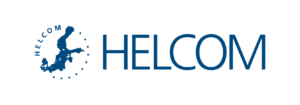Baltic COMPASS
Comprehensive Policy Actions and Sustainable Solutions for Agriculture in the Baltic Sea Region (2009-2013)

Background
Baltic COMPASS project grew
out of a large number of international projects in the field of land
use, agriculture, water and environment related to the protection of the
Baltic Sea. Specifically, Baltic COMPASS was a response to the need for
a transnational approach to reduce eutrophication of the Baltic Sea and
to build adaptive management capacity with respect to international
frameworks, EU directives and the HELCOM Baltic Sea Action Plan (BSAP).
Land
use for agricultural purposes in the Baltic Sea Region is expected to
intensify due to climate change and increasing global demands for food
and bioenergy. This is likely to exacerbate current pressures on the
sensitive marine ecosystems. The competence, technologies, policies and
science for developing more sustainable solutions are available in the
Baltic Sea Region, but these are currently unevenly distributed and
harmonized between regions, and moreover between the west and the east.
This is the specific transnational challenge addressed by Baltic
COMPASS.
Aim and Target Groups
The
project aimed particularly to remedy the gaps in the stakeholders’
capacity and resources to combat euthrophication and communicate on the
different policy levels, and the lack of trust between the environmental
and agricultural sectors. The project aimed to support win-win
solutions for agriculture, environment and the people throughout the
Baltic Sea Region. 22 partners from authorities, interest organizations
and research institutes in Finland, Russia, Belarus, Estonia, Latvia,
Lithuania, Poland, Germany, Denmark and Sweden constituted the
partnership.
The target groups for Baltic COMPASS were
governments, authorities, agencies, interest organizations and companies
with influence on land use in the Baltic Sea Region.
HELCOM’s Role
In collaboration with the Swedish Board of Agriculture, HELCOM was providing insights within the COMPASS Work Package 6, regarding Baltic Sea Region level policy dialogue in agriculture and environment issues for the benefit of the Baltic Sea. More specifically, HELCOMs tasks included “Exploring cross sector and cross border dialogues”. The task run from July to December 2012.
Outcomes
Full sets of materials – event proceedings, project reports, external reports and newsletters – are available at the project website/materials (http://www.balticcompass.org/materials.html).
The project run from December 2009 until December 2012 and had a budget of 6,7 MEUR co-financed by the EU Baltic Sea Region Programme.
Further Information
Please visit the project website for details and follow-up of the project activities.

